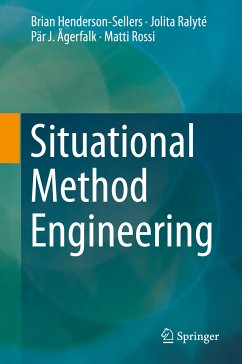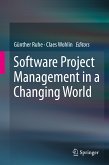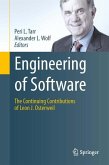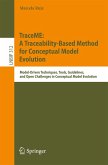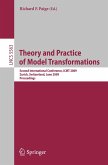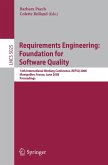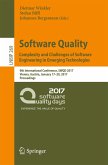The authors have structured the book into three parts. Part I deals with all the basic concepts, terminology and overall ideas underpinning situational method engineering. As a summary of this part, they present a formal meta-model that enables readers to create their own quality methods and supporting tools. In Part II, they explain how to implement SME in practice, i.e., how to find method components and put them together and how to evaluate the resulting method. For illustration, they also include several industry case studies of customized or constructed processes, highlighting the impact that high-quality engineered methods can have on the success of an industrial software development. Finally, Part III summarizes some of the more recent and forward-looking ideas.
This book presents the first summary of the state of the art for SME. For academics, it provides a comprehensive conceptual framework and discusses new research areas. For lecturers, thanks to its step-by-step explanations from basics to the customization and quality assessment of constructed methods, it serves as a solid basis for comprehensive courses on the topic. For industry methodologists, it offers a reference guide on featuresand technologies to consider when developing in-house software development methods or customising and adopting off-the-shelf ones.
Dieser Download kann aus rechtlichen Gründen nur mit Rechnungsadresse in A, B, BG, CY, CZ, D, DK, EW, E, FIN, F, GR, HR, H, IRL, I, LT, L, LR, M, NL, PL, P, R, S, SLO, SK ausgeliefert werden.
"I am confident this text will prove an invaluable resource for those interested in improving the standard of software development and the resulting software applications." from the foreword by Mary O'Kane, NSW Chief Scientist & Engineer, Sydney, Australia
"This book deftly balances the advantages of situational method engineering in terms of its practical application, underpinned by the solid theory from worldwide research. I heartily recommend it for both researchers and practitioners." from the foreword by Julian Edwards, Chief Operating Officer, Object Consulting, Sydney, Australia
"I am confident this text will prove an invaluable resource for those interested in improving the standard of software development and the resulting software applications." from the foreword by Mary O'Kane, NSW Chief Scientist & Engineer, Sydney, Australia
"This book deftly balances the advantages of situational method engineering in terms of its practical application, underpinned by the solid theory from worldwide research. I heartily recommend it for both researchers and practitioners." from the foreword by Julian Edwards, Chief Operating Officer, Object Consulting, Sydney, Australia

